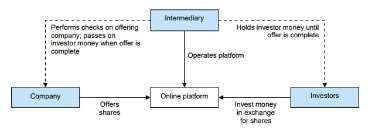
By keeping each department or division within budget, companies can remain on track with their long-term financial goals. A static budget serves as a guide or map for the overall direction of the company. A fixed budget (a.k.a. static budget) is a type of budget plan that doesn’t change with the increases/decreases in the level of activity. A flexible budget allows you to change how much you spend in various categories each month depending on your income.
Nonetheless consultants have the great level influences the senior management. Once you’ve chosen your system, you can move on to picking a budget planner to help break down your budget and put the numbers into perspective. No matter which budget planner you decide to use, take some time to tweak your approach and adjust your spending as needed until you reach your ideal budget. https://online-accounting.net/ Once you’ve knocked off any toxic debt, the next task is to get yourself on track for retirement. Aim to save 15% of your gross income; that includes your company match, if there is one. Over the long term, someone who follows these guidelines will have manageable debt, room to indulge occasionally, and savings to pay irregular or unexpected expenses and retire comfortably.
Without a budget, it’s harder to gauge a business’s performance and growth. A consultant is who has a position to have a certain level of influences over an individual, a group or an organisation but who has no absolute power to make or to adapt changes into the organisation. It is the employee of the organisation has the power to decide whether to accept and implement the changes into the organisation. The consultant brings specialised skills, knowledge, expertises or accessing certain information into the organisation. Explore other budget spreadsheets and templates, or download a budget app.
This budgeting method is totally different from a fixed budget as here the budgeted costs are varying with the actual input and output levels of the business. It is more important for any organization to analyse the variances identified by flexible budgets due to the fact that flexible budget determines the standard cost of operating for actual output levels. One of the key advantages of flexible budgeting is that it provides management with real-time data on projected versus actual outcomes in product versus costs and efficiency levels in managing them. This means that it offers much greater cost control over a business operation and makes it more competitive. This also targets more accurately where performance levels are falling below or meeting expectations.
When using a static budget, some managers use it as a target for expenses, costs, and revenue while others use a static budget to forecast the company’s numbers. If you could use some more breathing room in your budget, finding ways to save each month can help. How you approach saving money can vary, based on whether you’re trying to cut your fixed or variable expenses. For example, you may take vacations or trips two to three times a year. The amount you spend each time may vary, but you’re not paying for those expenses monthly. Instead, you may budget for those kinds of variable expenses using sinking funds—money that you set aside for this purpose.
Fixed Budget vs Flexible Budget
You’ll need the discipline to cut back, however, on months when your income is lower. You don’t want to rely on credit cards to maintain a higher income lifestyle in months you aren’t making that kind of money. Make sure the bulk of your extra income goes toward savings and investments.
Also, temporary staff or additional employees needed for overtime during busy times are best budgeted using a flexible budget versus a static one. The upside of having variable expenses in your budget is that you have more control over them than you do with fixed expenses. Because of its easily adjustable nature, a flexible budget is best-suited for businesses that have varying levels of activity or those that have tons of variable expenses. A flexible budget allows you to enjoy the fruits of your labor by permitting you to increase your spending in certain categories, such as groceries, dining and entertainment, as your income increases.
Create a budget plan that works for you
This means that the budget for sales commissions will be $50,000 only when sales are $1 million. If the company has actual sales of $900,000, the budget for sales commissions will flex and will be $45,000 (5% of $900,000). If the actual sales are $1,100,000 the budget for sales commissions will be $55,000.
- For example, if management anticipates that costs will increase by 5% this year, they will simply have to increase the previous year’s budget by the same rate.
- It’s important not only that you have a budget but also that you make an effort to live your budget.
- Regular contributions can help you build up three to six months’ worth of essential living expenses — not your full budget, just the must-pay basics.
- Companies with fixed budgets see the budget as a constraint and try to manage things with what is available.
Here, actual revenues and other cost details are placed during or after the completion of a financial period.Flexible budget is prepared from fixed budget and is therefore known as revised budget. Once after preparation of flexible budget, management compare actual figures and determine variances. Performing this activity helps management to analyse reasons for deviations at an early stage and take suitable corrective actions at the earliest. Basic objective of flexible budget is to develop a standard level of costs which should be incurred for actual manufacturing outputs. A flexible budget is prepared taking into considerations nature of various cost incurred as like fixed or variable. An entity can draw multiple flexible budgets based on different capacity utilization as per different business scenarios.
When to Use a Fixed Budget
Budgeting for variable expenses can be more challenging, as you may not be able to pinpoint exactly how much they’ll add up to from one month to another. If you’re not tracking variable expenses regularly, it could be very easy to under- or overestimate how much of your budget you should allocate to them. This is something you can easily do with a budgeting app, however, which can minimize the odds of variable expenses sideswiping your spending plan. The other advantage to a fixed budget is that it can be set up even when one does not have any numbers on hand about costs and profits.

Normally general ledger accounts will be prepared in advance before the financial year as the cost classified as fixed and it will not very in direct proportion of the level of activities. If, the level of activities attained are varies from the budgeted activities then fixed budget become ineffective. Within an organization, static budgets are often used by accountants and chief financial officers (CFOs)–providing them with financial control. The static budget serves as a mechanism to prevent overspending and match expenses–or outgoing payments–with incoming revenue from sales. In short, a well-managed static budget is a cash flow planning tool for companies.
Pros and Cons of a Flexible Budget
These budgets disclose the influences of the operational budget on the organisation, financial position and potential revenues. Financial budget include cash budget, capital expenditures budget, balance sheet and income statement. The aim of budgeting is to give management an idea how well the organisation is projecting the income goals and how well the organisation managing the working capital. The budgeting exercise should able to increase the profit, reduce inappropriate expenses and it also helps to expand the markets (Thomsett, 1988, p.5). To achieve the budgeting aim, the management needs to build a budgeting system (Viscione , J. 1984). Another way to mitigate the effects of a fixed budget is to shorten the period covered by it.
Medicare encourages states to test global health budgets – Axios
Medicare encourages states to test global health budgets.
Posted: Wed, 06 Sep 2023 09:57:52 GMT [source]
Once you hit the contribution limit on the IRA, return to your 401(k) and maximize your contribution there. You can’t get out of debt without a way to avoid more debt every time something unexpected happens. If your absolute essentials overshoot the 50% mark, you may need to dip into the “wants” portion of your budget for a while. It’s not the end of the world, but you’ll have to adjust your spending. Track your monthly spending trends to break down your needs and wants.
What Are the Benefits of Corporate Long-Term Debt?
The objective of the budget is to measure of the financial structure of the organisation and budget is a tool that forces management to be accountable in a structured and objective way. Budget facilities the planning and resources allocation and help to estimate, itemised, analysis and examined the entire product and service that organisation offers to customer. Even if your necessities fall under the 50% cap, revisiting these fixed expenses occasionally is smart. You may find a better cell phone plan, an opportunity to refinance your mortgage or an opportunity for less expensive car insurance. A fixed budget is more suited for a business that doesn’t vary in its level of activity. Multiple flexible budget plans may also be prepared for different levels of activity.
Fixed Budget vs. Flexible Budget: What’s the Difference and Which Is Right for You? – GOBankingRates
Fixed Budget vs. Flexible Budget: What’s the Difference and Which Is Right for You?.
Posted: Thu, 17 Aug 2023 07:00:00 GMT [source]
However, it doesn’t focus much on necessary details, nor it is too hierarchical. The majority of companies prefer a flexible budget over a fixed budget. Mostly, fixed budget planning is established keeping in mind the long-term goals. Doing so will help organizations deal with tough situations or emergencies. Financial budget controls the organisation financial aspect of the business.
Fixed Vs. Variable Expenses: What’s The Difference?
Most flexible budgets hardly ever hit the mark because they ignore a lot of factors. This makes it easier to prepare a static budget as the costs are predictable. For one, a fixed budget is static, while a flexible budget is dynamic. On the other hand, variable costs are those that increase or decrease depending on the activity level.
